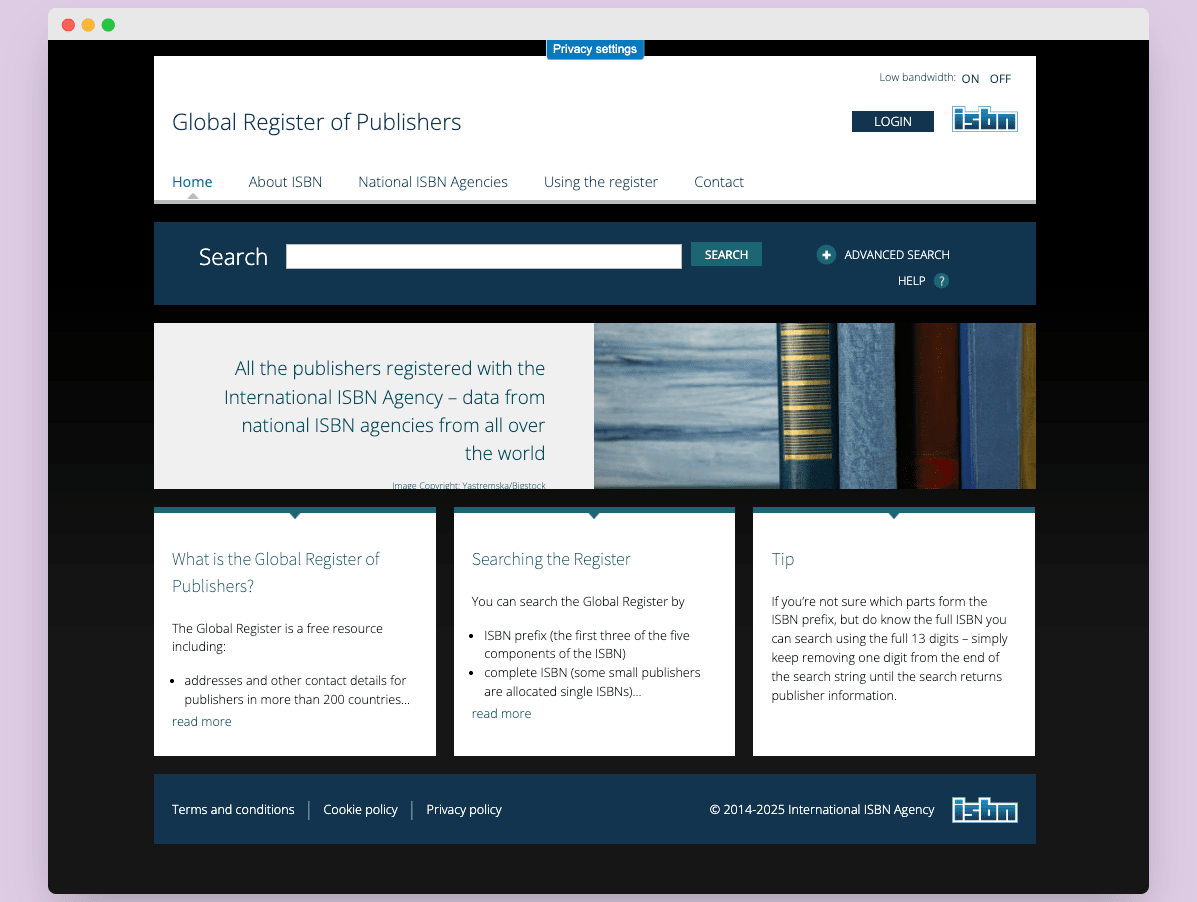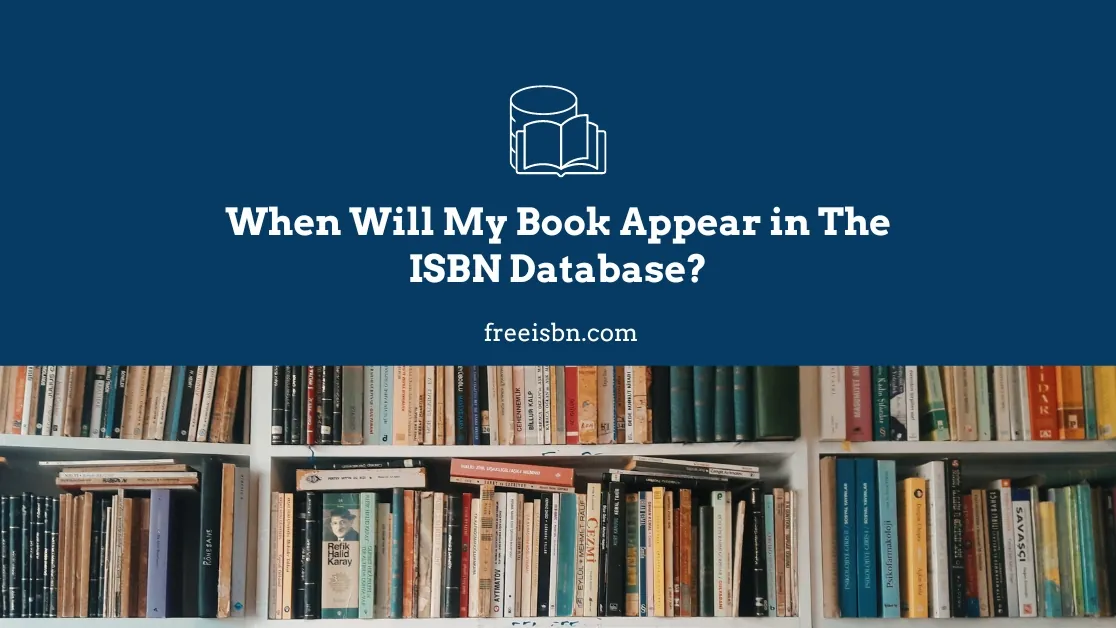
The Global Register of Publishers: Purpose, Functionality, and Challenges
Explore the Global Register of Publishers (GRP), the International ISBN Agency's database designed to centralize information on over a million publishers and their ISBN prefixes. While intended to aid publishers, indie authors, and librarians in verifying identities and managing the ISBN system with free, global access, the GRP faces critical flaws. Discover its functionality, its intended role, and why significant challenges including 1-2 year update delays, inconsistent data from national agencies, and serious privacy risks.
The Global Register of Publishers (GRP), managed by the International ISBN Agency, is a centralized database designed to store information on publishers and their assigned International Standard Book Number (ISBN) prefixes. Aimed at book publishers, indie authors, and librarians, the GRP seeks to facilitate publisher identity verification and support the global ISBN system.
However, despite its ambitious scope, the GRP faces significant limitations, including slow updates, inconsistent data contributions, and privacy concerns, particularly for self-publishing authors.
This article explores the GRP’s purpose, how it operates, its role in the ISBN system, and the challenges that undermine its effectiveness.
What is the Global Register of Publishers?

The GRP is a free, global database containing data on over one million ISBN prefixes and publishers from more than 200 countries. It includes contact details and addresses for a wide range of publishers, from large publishing houses with extensive ISBN blocks to small publishers with just one or two ISBNs. The International ISBN Agency compiles this data, which is submitted by national ISBN agencies and updated annually.
The GRP’s primary purpose is to verify publisher identities and manage ISBN prefix records, providing a resource for stakeholders in the publishing industry to access reliable publisher information. However, it is not intended for finding publishers to publish books or for general audience use. Visit Official GRP website to learn more.
Understanding the ISBN System
The ISBN is a 13-digit identifier assigned to books and other monographic publications to ensure their unique identification worldwide. It consists of five parts:
- Prefix Element: Typically 978 or 979, indicating the book industry.
- Registration Group: Identifies the country or language area.
- Registrant: Denotes the specific publisher or imprint.
- Publication: Specifies the individual title or edition.
- Check Digit: Validates the ISBN’s accuracy.
National ISBN agencies assign ISBN to publishers and authors within their regions, adhering to rules that vary by country. The International ISBN Agency oversees this global system, ensuring ISBN uniqueness and consistency. The GRP plays a critical role by centralizing records of these assignments, theoretically enabling users to trace an ISBN prefix to a publisher’s identity and contact details.
How the Global Register Works
The GRP offers two levels of access for users:
- Basic Search: Available without registration, users can search by ISBN prefix (the first three components of an ISBN) or a full 13-digit ISBN to retrieve basic publisher information.
- Advanced Search: Requires free registration and provides access to full contact details and additional filters, such as registrant status (active, inactive, or both).
Searching by ISBN prefix can be tricky, as the system may return multiple records if the search string is part of other valid prefixes. For example, searching “978-0-19” might also return “978-0-9780191.” A useful tip for users is to search with a full ISBN and remove digits from the end until results appear, especially if the prefix is unclear.
The Role of the GRP in the ISBN System
The GRP is designed to streamline the ISBN system by maintaining an organized, globally accessible database of publishers and their ISBN prefixes. National ISBN agencies contribute data on publishers and their allocations, which the International ISBN Agency compiles to ensure ISBN uniqueness and transparency. By providing a centralized resource, the GRP aims to support anyone engaged in publishing industry to verify publishers legitimacy in ISBN system.
GRP offers several potential benefits:
- For Publishers: The GRP provides a centralized platform to verify ISBN prefix ownership and check other publishers’ legitimacy, fostering trust in professional networks. Its global coverage of over 200 countries supports international collaboration.
- For Indie Authors: The database could help confirm a publisher’s identity before collaboration or self-publishing, ensuring authors engage with credible entities.
- For Librarians: The GRP is intended to simplify cataloging and acquisitions by providing publisher data linked to ISBNs, streamlining metadata management.
- General Benefits: The GRP is free, with basic searches accessible without registration, and its user-friendly interface allows quick registration for advanced features. Its goal of maintaining ISBN uniqueness is critical for the publishing industry.
Significant Challenges and Drawbacks
The GRP’s potential is undermined by several critical issues that limit its reliability and usability.
Slow Updates
One of the most significant drawbacks is the GRP’s slow update cycle. It can take 1–2 years for a publisher’s name or ISBN prefix to be added to the database, depending on the efficiency of the national ISBN agency. This delay renders the GRP unreliable for real-time publisher verification, as new or recently assigned ISBNs may not appear promptly.
Inconsistent Data Contributions
The quality and quantity of data in the GRP vary widely due to differences in national ISBN agency practices. Some agencies collect and submit detailed publisher information, while others provide minimal data, resulting in incomplete or inconsistent records. This variability creates gaps in the database, making it challenging for users to rely on the GRP for accurate verification or comprehensive publisher details.
Limited Utility
GRP database doesn’t include information about books, it is just publsihers contact details and ISBN publisher prefix. So there no use for Librarians and book retailers. Publishing platform or online software can use this database to verify the publisher name of a ISBN but because of delay in data make it unrealibale.
Search Limitations
The GRP’s search functionality can be confusing, particularly for users unfamiliar with ISBN structures. Searches by ISBN prefix often return multiple records due to overlapping strings, requiring careful navigation to identify the correct publisher. This complexity can frustrate users seeking quick and precise results.
Privacy Concerns
A significant privacy issue arises for self-publishing authors, particularly in India, where the ISBN agency (RRRNA) imposes strict rules.
Many ISBN agencies now issue ISBNs directly to authors, who may use their personal name as an imprint name. In India, self-publishing authors are required to use their legal name as the imprint name and are prohibited from using pen names to obtain a ISBN and publish a book. As a result, their legal name, home address, and contact details are added to the GRP database, exposing sensitive personal information to public access. This practice raises serious privacy concerns, as authors may not anticipate their home addresses being globally accessible.
For a detailed exploration of these challenges, see The Struggle of Obtaining an ISBN in India. While this issue is most documented in India, similar risks may exist in other regions with comparable policies, further undermining the GRP’s suitability for indie authors.
Conclusion
The Global Register of Publishers is an ambitious effort to centralize publisher data and support the ISBN system, offering potential benefits for book publishers, indie authors, and librarians. Its free access, global scope, and goal of maintaining ISBN uniqueness are commendable. However, its slow update cycle, inconsistent data contributions, limited utility for cataloging, and significant privacy concerns, particularly for self-publishing authors in India, severely limit its effectiveness.

Araix Rand
Book Publicist
Araix has been helping authors with self-publishing and marketing their books. Additionally, he writes for various business and marketing blogs.
More posts by Araix Rand

